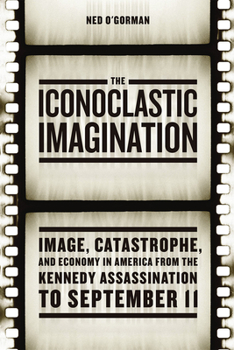The Iconoclastic Imagination: Image, Catastrophe, and Economy in America from the Kennedy Assassination to September 11
Select Format
Select Condition 
Book Overview
Bloody, fiery spectacles--the Challenger disaster, 9/11, JFK's assassination--have given us moments of catastrophe that make it easy to answer the "where were you when" question and shape our ways of seeing what came before and after. Why are these spectacles so packed with meaning? In The Iconoclastic Imagination, Ned O'Gorman approaches each of these moments as an image of icon-destruction that give us distinct ways to imagine social existence in American life. He argues that the Cold War gave rise to crises in political, aesthetic, and political-aesthetic representations. Locating all of these crises within a "neoliberal imaginary," O'Gorman explains that since the Kennedy assassination, the most powerful way to see "America" has been in the destruction of representative American symbols or icons. This, in turn, has profound implications for a neoliberal economy, social philosophy, and public policy. Richly interwoven with philosophical, theological, and rhetorical traditions, the book offers a new foundation for a complex and innovative approach to studying Cold War America, political theory, and visual culture.
Format:Hardcover
Language:English
ISBN:022631006X
ISBN13:9780226310060
Release Date:November 2015
Publisher:University of Chicago Press
Length:288 Pages
Weight:1.15 lbs.
Dimensions:0.8" x 6.0" x 9.1"
Customer Reviews
0 rating





